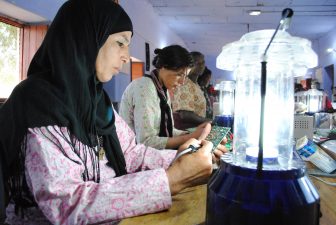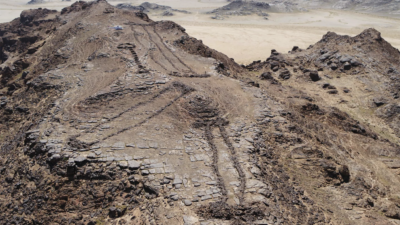 Swedish NGO uses Hayatuna – creative arts to provide new perspectives to kids in the Middle East
Swedish NGO uses Hayatuna – creative arts to provide new perspectives to kids in the Middle East
As a Dance and Anthropology double major and an Arabic minor at Montclair State University, my interests slip right into the mission of Spiritus Mundi, a Swedish NGO that sees the arts as forces in social change and whose chief operations are in the Middle East.
Hayatuna, or “Our Lives” in Arabic, is the name of a project that was launched by the organization this summer in Amman, Jordan and is set to be initiated next in Cairo, Egypt.
Dancing, singing, and songwriting workshops were held several times per week for children from local orphanages at Freeway Dance Studios and Stardust Academy, to expose them to the performing arts and to build their confidence. During my internship with Spiritus Mundi, I helped to facilitate those workshops.
I mainly participated alongside the students, giving the occasional nod of encouragement or gentle reprimand when due.
But when the regular dance pedagogue, Jordanian-Ukrainian Maxeem Ayyad, couldn’t make it to class, I stepped in to teach two hour-long dance classes to children ages 7 to 10.
In preparation for the class, I memorized directional Arabic phrases which I thought might come in handy, Stand Up, Sit Down, Look at me, and Listen among them.
Although I did use these phrases and a translator was also provided for the rest, verbal communication was limited.
Still, I managed to lead an activity in which the children themselves created a short dance combination: I sought their input by asking them to demonstrate movement that depicted their favorite sports, and then I helped them to turn that movement into choreography by setting it against sets of eight-count musical phrases.
They were empowered in knowing that they were artists who could contribute in the collaborative creative process for dance, and ultimately, that they were being recognized for their talent and creativity rather than their life circumstances.
If teachers only told students what to do, then there would be no sign of value placed on students’ imagination or intuition.
Teachers and students are both producers and consumers of knowledge; knowledge flows in both directions.
In a greater context, this principle can aid in the sustainability of the Hayatuna – a feeling of empowerment and ownership on the part of the beneficiaries will render the project desirable and worthwhile.



